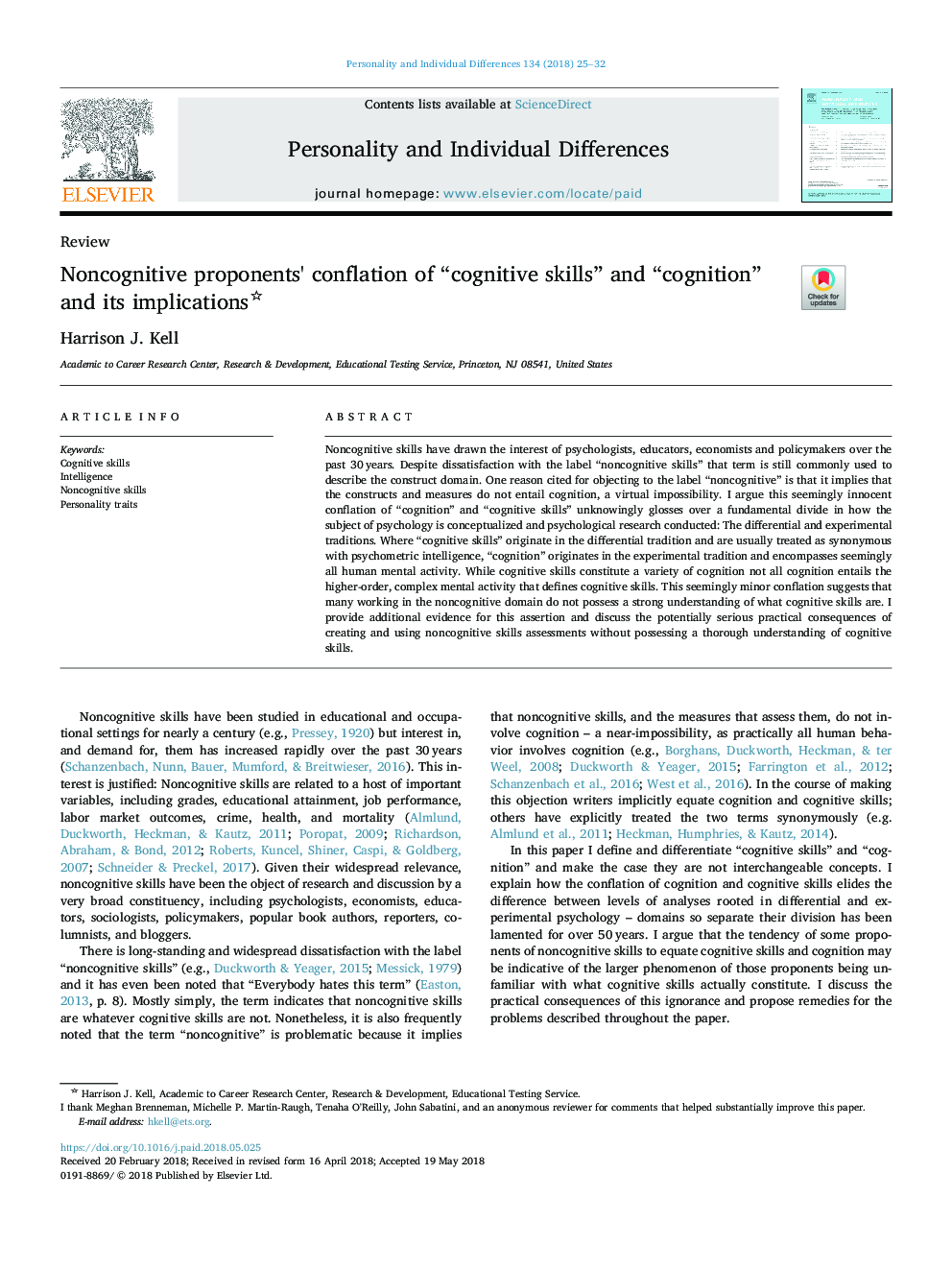| کد مقاله | کد نشریه | سال انتشار | مقاله انگلیسی | نسخه تمام متن |
|---|---|---|---|---|
| 7248353 | 1471984 | 2018 | 8 صفحه PDF | دانلود رایگان |
عنوان انگلیسی مقاله ISI
Noncognitive proponents' conflation of “cognitive skills” and “cognition” and its implications
ترجمه فارسی عنوان
مهارت های شناختی طرفداران غیر شناختی و یک شناخت؟ و پیامدهای آن
دانلود مقاله + سفارش ترجمه
دانلود مقاله ISI انگلیسی
رایگان برای ایرانیان
کلمات کلیدی
مهارت های شناختی، هوش مهارت های غیر شناختی، صفات شخصیتی،
موضوعات مرتبط
علوم زیستی و بیوفناوری
علم عصب شناسی
علوم اعصاب رفتاری
چکیده انگلیسی
Noncognitive skills have drawn the interest of psychologists, educators, economists and policymakers over the past 30â¯years. Despite dissatisfaction with the label “noncognitive skills” that term is still commonly used to describe the construct domain. One reason cited for objecting to the label “noncognitive” is that it implies that the constructs and measures do not entail cognition, a virtual impossibility. I argue this seemingly innocent conflation of “cognition” and “cognitive skills” unknowingly glosses over a fundamental divide in how the subject of psychology is conceptualized and psychological research conducted: The differential and experimental traditions. Where “cognitive skills” originate in the differential tradition and are usually treated as synonymous with psychometric intelligence, “cognition” originates in the experimental tradition and encompasses seemingly all human mental activity. While cognitive skills constitute a variety of cognition not all cognition entails the higher-order, complex mental activity that defines cognitive skills. This seemingly minor conflation suggests that many working in the noncognitive domain do not possess a strong understanding of what cognitive skills are. I provide additional evidence for this assertion and discuss the potentially serious practical consequences of creating and using noncognitive skills assessments without possessing a thorough understanding of cognitive skills.
ناشر
Database: Elsevier - ScienceDirect (ساینس دایرکت)
Journal: Personality and Individual Differences - Volume 134, 1 November 2018, Pages 25-32
Journal: Personality and Individual Differences - Volume 134, 1 November 2018, Pages 25-32
نویسندگان
Harrison J. Kell,
